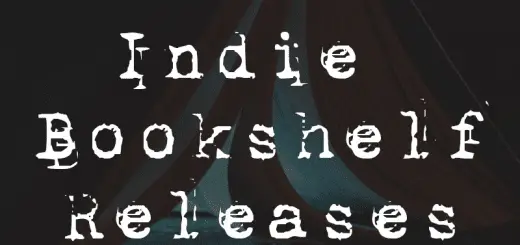Epeolatry Book Review: The Dark Between the Twilight by Jamal Hodge

Disclosure:
Our reviews may contain affiliate links. If you purchase something through the links in this article we may receive a small commission or referral fee. This happens without any additional cost to you.

Title: The Dark Between the Twilight
Author: Jamal Hodge
Genre: American Poetry, U.S. Horror Fiction, Dark Poetry
Publisher: Crystal Lake Publishing
Publication Date: 14th June, 2024
Synopsis: The Dark Between the Twilight is a unique collection of memoir and speculative poems that takes the reader on an unforgettable exploration of the darkest and brightest fragments of a lonely but loving heart. It is an accounting of one man’s soul through the power of the imagination. Through the redemption of his pain, Jamal Hodge invites us to turn from the shadows of the past and seek the light in our own lives.
Darkness purifies, Loneliness empties, and in the light, all are made whole again.
Proudly represented by Crystal Lake Publishing—Tales from the Darkest Depths.
A poet’s words, the meanings and images conveyed, are not the same for every reader, or even the same reader at different times. There is never a defined way to read a poem (no matter what your English teacher might have told you); all readings are subjective. My reactions and interpretations are liable to be completely different to yours, or even the poet’s, and that is as it should be. Regardless of interpretation, if you are a lover of dark poetry, this is for you.
A reader of Hodge’s poetry in a variety of publications, I have been keenly awaiting his debut collection. And what a gift he has given us in The Dark Between the Twilight. His subtitle, A Journey Through Evil, Loneliness, and Redemption, the book’s division into ‘A Song of Night,’ ‘A Black Scream in the Twilight,’ and ‘A Song of Dawn,’ together with its content of vulnerability, immediately brought to mind Yeats’s “He Wishes for the Cloths of Heaven” which talks of ‘night and light and the half-light’ and the poem’s final lines ‘I have spread my dreams under your feet; Tread softly because you tread on my dreams.’ Hodge has opened his heart to us and we must tread softly as we read, even as he takes the knife to his own thoughts and deeds dissecting them with extraordinary imagery and almost unbearable honesty: ‘Glass virtues/sharp enough to draw spiritual blood/Cutting me from me, the pieces fall/multi-colored as autumn leaves/in a pile of terrors at my feet.’ (“Xenophobia”). His “Artscape of Evils” continues this feeling of his words as brushstrokes upon a canvas which ‘sprout ghastly imaginings of massacred flesh/ascending mortal conceptions of Evil’ and I feel as though Hodges has sat me down in front of Bosch’s The Garden of Earthly Delights. He forces us to face the platitudes of a society trying to salve its conscience with regards to racism, ‘Convenience sprouts the collective deceit,’ our ‘myth of progress,’ (Systemic) whilst showing that it is not for the victim to come up with answers, but for those who are the servants of injustice to resolve the problem, as in ‘The Parable of the Blue Man.’ Only by searching for ‘God’s true face behind the mask he’d sculpted to suit his own reflection’ and asking ‘Lord, how do I fix this?’ will things begin to change. Nor does he allow those who in theory do no harm: ‘In the face of injustice, unable to speak … none can inspire evil, as the Harmless Man can.’ (‘Harmless’). In ‘A Fruit Called Wrath’ and its horrors of domestic abuse and violence, shocking to read, there is the line ‘We bear the burden of life, and still they bring us death.’ This phrase I found particularly resonant in today’s world, and by taking it out of the dreadful horror of the domestic zone (to which a blind eye is turned much too often) and into the awful experience of women in the increasing numbers of war zones and in the growing control of a woman’s life according to religious doctrine, I find his declaration to be a universal truth.
Other aspects of tormented childhood are reflected in ‘Foster Care,’ as one sibling suffers to protect the younger brother, and having that photograph alongside, with the smiling innocence and a face in shadow, is an additional gut punch. Again and again, Hodge’s verse is used, not just for his own self-analysis, but also as a mirror. He forces us to look upon ourselves and examine if we are in anyway complicit in the attitudes and actions described. After all, who is without sin? Can we absolve ourselves?
You would be forgiven in assuming this is a collection of relentless dark, but I mentioned at the start, that Hodge gives us Yeats’s ‘night and light and the half-light’ and the last section is the light. There is hope ‘We can heal the generations/if we have the courage to endure/a little more,’ (“Stay. Live.”); there is the awareness of love: ‘faces brightened by the memory of my life,’ (“A Gift of Illness”); as well as the knowledge of our time as finite: ‘This is our moment/to breathe, to love/,’ (“Everybody Dies”).
Use this ‘moment’ to engage and absorb the poetry of Jamal Hodge. A debut collection ‘reaching/for the meaning/carved into darkness’ (“Restoration”) and all the more perfect because of that.
![]() /5
/5
Available from Amazon.












